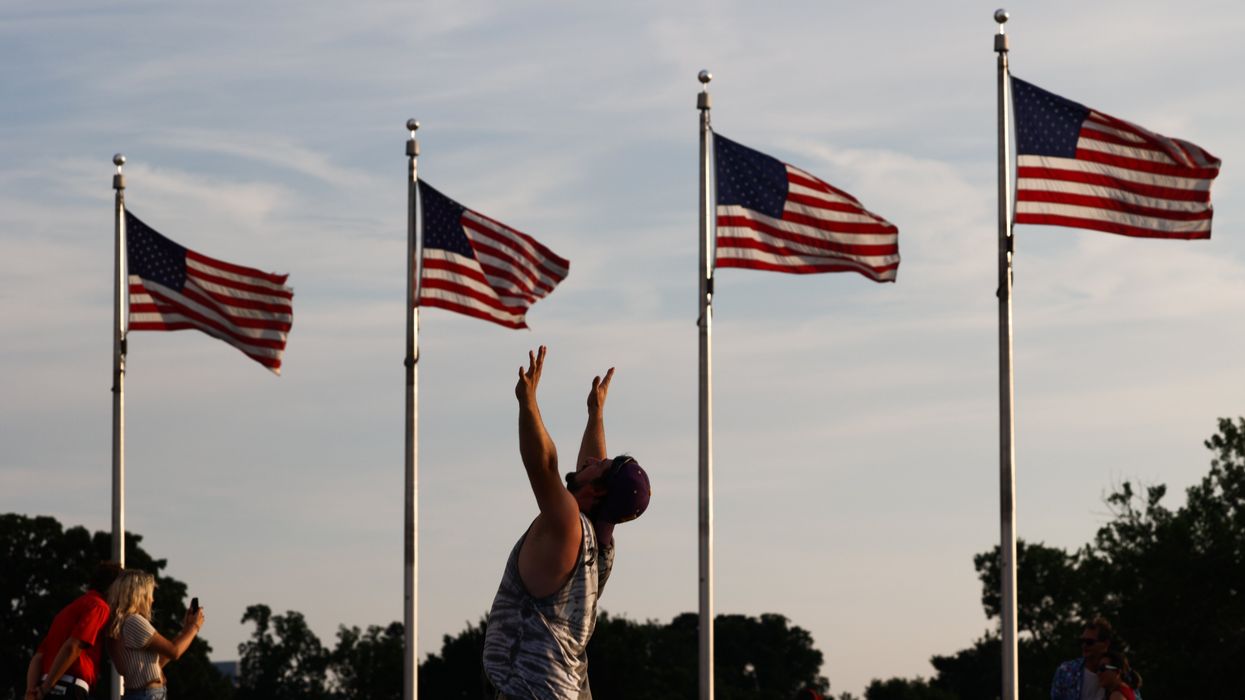Harwood is president and founder of The Harwood Institute. This is the latest entry in his series based on the "Enough. Time to Build.” campaign, which calls on community leaders and active citizens to step forward and build together.
I wanted to address Americans after the attempted assassination of former President Donald Trump. Consider this a personal note directly to you (yes, you, the reader!). And know that I have intentionally held off in expressing my thoughts to allow things to settle a bit. There’s already too much noise enveloping our politics and lives.
Like most Americans, I am praying for the former president, his family and all those affected by last weekend’s events. There is no room for political violence in our nation.
I'm not here to offer political commentary or make predictions about this act of senseless violence. That’s not my role. But here's the deal. We are all suffering these days. There is so much division, acrimony, recriminations and hatred in our land. Right now, my chief concern is this: How do any of us — how do you — maintain a sense of hope during this time? How do you stay grounded when things can feel so confusing and disorienting — when we can feel unmoored?
Our nation is at an impasse. Things may get worse before they get better. But that does not mean there is no hope to be found. There is a way to find authentic hope during these tumultuous times and stay grounded at the same time.
I travel America almost weekly, working with community leaders and active citizens to support their efforts to catalyze and unleash change that addresses what matters most to people and strengthens their communities’ civic culture. In spite of the divisions we hear about every day, everywhere I go I see people from all walks of life, from all political persuasions, and from all faiths coming together to build. To figure out what they can agree on, amid our real differences, to get in motion and to take shared action. They are making a real, practical difference.
I take hope from these efforts. So can you. But to do so, you must first be willing to see them — that means you must actively look for them, lift them up and keep them in your heart and mind. You must be a guardian of these efforts even as the noise of the world seeks to crowd them out or devalue them. It does not matter how large or small the change is that they produce. What matters is that they are proof that we can restore our belief in one another and move forward together.
I am also traveling America on our campaign, “Enough. Time to Build.” The response to this campaign has been remarkable — and is growing by leaps and bounds each day. Honestly, it is spreading so fast I can barely keep up. Indeed, we are the only national campaign that is being invited to communities of all political persuasions — red and blue and purple. The important question is why?
It is a sign of just how hungry people are for a new path — a civic path — forward. Where change begins in our local communities and grows from there. This is how significant change has often started in our country. I take hope from people’s response to this effort. As Fanny Lou Hamer said, “People are sick and tired of being sick and tired.” You may be, too.
Staying grounded when you feel like things are coming apart is never easy. Platitudes only make things worse. Calls to simply bridge our divides are not enough. Raising the volume of our debate only adds more anxiety.
Being grounded requires that we see reality for what it is — and then put a stake in the ground about what we seek it to be. Progress during times like these throughout our history — from the abolition of slavery to women's suffrage to civil rights and voting rights to gay rights — has never been easy. But we have also never given up, or given in. We persevered. We came together around kitchen tables, in church basements and in civic halls — and we refused to settle. History teaches us that it is everyday Americans who are most responsible for our progress. That we can once again lead this country forward if enough of us come together around our shared aspirations rather than allowing our differences to overcome us.
Like me, you may be deeply troubled by what is happening in our country — and to our country. It keeps me awake at night. At times, my anxiety rises. I fear things coming apart. Until I think about what gives me hope and how I can stay grounded. Then, I rise up and do the work. I know you do, too. Every single day.
Keep looking for where you can find hope. Let’s put a stake in the ground about the kind of country we seek to build. And let’s go together.




















Trump & Hegseth gave Mark Kelly a huge 2028 gift